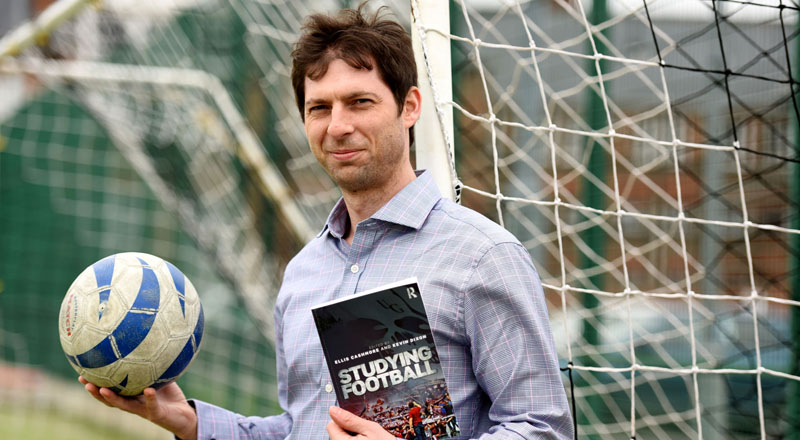New book analyses the history of corruption in football
A Teesside University academic has co-edited a new book which contains an in-depth analysis of the history of corruption in football.

‘Studying Football’, published by Routledge and edited by Ellis Cashmore, visiting professor of sociology at Aston University, and Dr Kevin Dixon, a senior lecturer in sport and exercise at Teesside University, is the first book designed to approach the sport as a serious academic subject and support the study of football on degree-level courses.
The book looks at what it is about football that has captivated us for the last 150 years and what motivates people to spend so much time and money to support a multi-billion pound international industry.
The book’s 12 chapters, written by an array of leading academics, each looks at a different topic related to football including racism, globalisation, consumption and fandom.
The final chapter, which has been written by Professor Cashmore and Dr Dixon, investigates corruption within the game and is the most up to date and analytical account of corruption in football.
It finds that, far from being a recent development, corruption has been endemic since 1885 when professionalism was first allowed.
The book concludes that corruption in football is impossible to eliminate and future scandals will ‘surprise only children and the unwary’ as changing personnel does little to prevent corruption, other than presenting a new face to the public.
The way football hierarchies are organised also tend to concentrate power in the hands of a few, who then become distant from their members.
As people rise to the top of their organisation through their own abilities, they then devote their energies into protecting their own interests and preventing themselves from being ousted by challengers.
Kevin Dixon conceived the idea of the book when teaching his module, Football Culture and Society at Teesside University. He said: 'Football is a business like no other. Despite all of this the fans keep coming back, they can’t help it.
'Many of them know that they are being exploited and are aware of the corruption within the game, but they are not like traditional consumers. They are wedded to their team.'
Ellis Cashmore added: 'Football is not going to deliver peace on earth, save the planet, or help us find the cure for life-threatening disease.
'But it still captivates about two-thirds of the world's population; the book asks and answers ""Why?"'
Purchase a copy of the book here.
 Teesside University academics join prestigious network of
...
Teesside University academics join prestigious network of
... Curatorial studies culminating with international art
...
Curatorial studies culminating with international art
... Teesside animation graduates receive top regional Royal
...
Teesside animation graduates receive top regional Royal
...